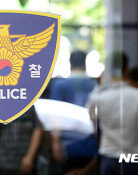High Court Picks 224 Retrial Cases
It was revealed on January 31 that the Supreme Court selected 224 cases out of all the national security cases between 1972 and 1987 as cases with grounds for retrial, such as unlawful imprisonment and torture.
It was also disclosed that the selection includes major spy cases and scandals concerning national security, such as the Jindo family spy case in 1981, the kidnapped fisherman spy scandal in 1983, and the Song family spy scandal in 1982.
The Supreme Court intends to make rehabilitation possible even without a request for retrial by the persons concerned by admitting the errors contained in the 224 cases classified for retrial with an appropriate manner some time in the future.
If the cases under retrial pass an appeal and final appeal procedures, and move on to the Supreme Court, the Supreme Court will alter its existing judgment and at the same time leave in the decision the intent to apologize to the Koreans for the erstwhile faults of the judicature.
The Supreme Court planned to include in its decision the view of the judicature on the clearance of the past affairs if the case of the Committee for the Reestablishment of Peoples Revolutionary Party (in-min-hyeok-myeong-dang jae-geon-wi-won-hoi, in-hyeok-dang in short), recently judged innocent in the retrial, made it to the Supreme Court, but that plan became abortive since the prosecution gave up on an appeal, says a key person of the Supreme Court. But if the case of the family bereaved by the in-hyeok-dang claim or other retrial cases are moved on to the Supreme Court, it will work toward clearing the record of the past.
That includes the cases (and even those that did not go through formal retrial steps) in which new evidence was found or is likely to be found that supports charges of unlawful arrest or torture during the investigation. The remark constitutes the Supreme Courts acknowledgement of its fault.
Also, this indicates that the big spy cases that brought about social distractions during the Yusin and the 5th republic regimes were in fact forfeited by Koreas intelligence and security agencies.
Accordingly, it is highly likely that voices calling for somebody that should be held responsible will gain ground within the judicature and the parties of the case or human rights organizations will make a request for the punishment of responsible persons and claim damages one after another. Also the situation could develop into an ideological conflict, especially with the presidential election so near.
Out of the 224 cases 114 spy cases take up the greatest portion, with the rest made up of 26 cases of violations of emergency measures, 13 cases of organization of anti-national bodies, 12 cases of democratization movement activity, and 32 other cases. The spy cases can be divided into 52 cases related to Jochongnyeon (the pro-North Korean residents´ league in Japan), 33 cases of spies dispatched from North Korea, 18 cases of kidnapped fishermen, 16 cases of Korean residents in Japan, and 22 other cases.
Also included among the retrials are the 26 cases between 1975 and 1978 for violations of emergency measures.
The selection process of the 224 cases classified by the Supreme Court for retrial lasted over a year from September 2005, and was carried out based on an analysis of 3,400 decisions in cases of national security and on the assertions of the parties concerned.
woogija@donga.com verso@donga.com







